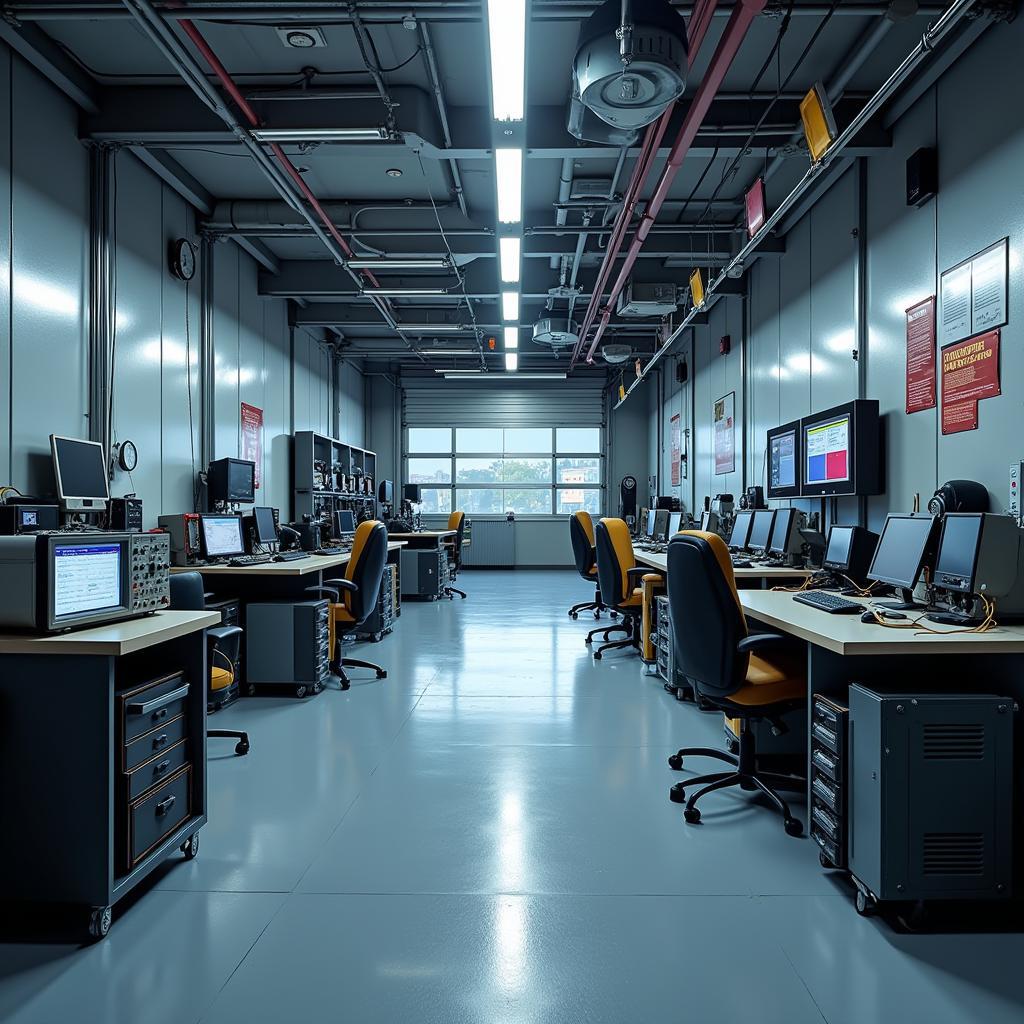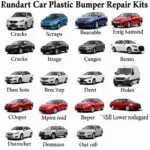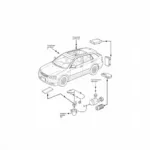Diagnostic assessment for cars is a crucial process for maintaining your vehicle’s health and addressing performance issues. It involves using specialized tools and techniques to identify the root cause of problems, ensuring effective repairs and preventing further damage. This comprehensive assessment goes beyond a simple visual inspection, delving into the intricate systems of your car to pinpoint malfunctions accurately. Understanding what diagnostic assessment entails can empower you to make informed decisions about your car’s maintenance and repairs. You can find a car diagnostic center near me.
Why is Car Diagnostic Assessment Important?
Regular diagnostic assessments offer numerous benefits, from preventing costly repairs to ensuring your safety on the road. They help identify potential issues early on, preventing small problems from escalating into major, expensive repairs. Imagine a small leak in your cooling system. A diagnostic assessment can detect this early, allowing for a simple fix. Without it, the leak could worsen, leading to engine overheating and potentially catastrophic damage.
How Diagnostic Assessments Save You Money
Diagnostic assessments are an investment, not an expense. By catching issues early, you save money on potentially extensive repairs down the line. They also optimize your vehicle’s performance, improving fuel efficiency and reducing wear and tear.
How Does Car Diagnostic Assessment Work?
The process typically involves connecting a specialized scanning tool to your car’s onboard diagnostic (OBD) port. This port acts as a communication gateway to your car’s computer, allowing the scanner to retrieve diagnostic trouble codes (DTCs). These codes indicate specific areas of concern within various systems, such as the engine, transmission, brakes, and emissions system. Think of it like a doctor reading your vital signs. The scanner reads your car’s “vital signs” to understand what’s going on under the hood. You can search for diagnostics for cars for sale to ensure the vehicle you’re interested in is in good working order.
Understanding Diagnostic Trouble Codes (DTCs)
DTCs are alphanumeric codes that correspond to specific malfunctions. While the codes themselves don’t provide a precise diagnosis, they guide the mechanic in the right direction. Experienced technicians use these codes, combined with their knowledge and further testing, to pinpoint the exact issue.
What are the Different Types of Car Diagnostic Assessments?
There are various types of diagnostic assessments, ranging from basic code readings to more advanced system-specific tests. These assessments may include checking the engine’s performance, analyzing the exhaust emissions, evaluating the transmission’s function, and inspecting the braking system’s responsiveness. The type of assessment required depends on the specific symptoms your car is exhibiting.
What are the Common Signs Your Car Needs a Diagnostic Assessment?
Several signs indicate the need for a diagnostic assessment. These include the illumination of the check engine light, unusual noises coming from the engine or other components, decreased fuel efficiency, changes in driving performance, and difficulty starting the vehicle.
What to Expect During a Car Diagnostic Assessment
During a diagnostic assessment, a qualified technician will connect the scanning tool to your car’s OBD port, retrieve the DTCs, and interpret the codes. They will then conduct further tests to confirm the diagnosis and identify the underlying cause of the problem. This may involve visual inspections, manual checks, and specialized tests using advanced equipment. For example, if the DTC points towards a problem with the fuel injectors, the technician may perform a fuel pressure test to confirm the diagnosis.
How to Choose a Reliable Diagnostic Center
Choosing a reliable Cape Town car diagnostic test center is crucial. Look for certified technicians, modern equipment, and transparent pricing. Don’t hesitate to ask questions about their process and experience. A reputable center will be happy to address your concerns.
 Modern Car Diagnostic Equipment
Modern Car Diagnostic Equipment
Conclusion
Diagnostic assessment for cars is an essential part of vehicle maintenance. It allows for early detection of issues, preventing costly repairs and ensuring your safety on the road. By understanding the process and choosing a reliable diagnostic center, you can keep your car running smoothly and avoid unexpected breakdowns. Regular diagnostic assessments are a proactive approach to car care, saving you money and providing peace of mind.
FAQ
- How often should I get a car diagnostic assessment? It is generally recommended to get a diagnostic assessment annually or whenever you notice any unusual symptoms.
- How long does a car diagnostic assessment take? The time required can vary depending on the complexity of the issue, but it typically takes between 30 minutes to an hour.
- Can I perform a diagnostic assessment myself? While you can purchase basic OBD scanners, it’s best to leave the interpretation of codes and further diagnosis to qualified technicians.
- What is the cost of a car diagnostic assessment? The cost varies depending on the location and the complexity of the issue, but it is typically a reasonable investment compared to the cost of major repairs.
- Is a diagnostic assessment the same as a tune-up? No, a diagnostic assessment is focused on identifying problems, while a tune-up involves routine maintenance procedures.
- What should I do if the check engine light comes on? Schedule a diagnostic assessment as soon as possible to determine the underlying cause.
- Can a diagnostic assessment prevent all car problems? While it can detect many potential issues, it cannot prevent all problems, especially those related to wear and tear or unexpected events.
Common Situations Prompting Diagnostic Assessments:
- Check engine light illuminated
- Unusual engine noises
- Decreased fuel efficiency
- Poor acceleration or performance
- Difficulty starting the vehicle
Other Relevant Articles and Questions:
- How to interpret diagnostic trouble codes
- The importance of regular car maintenance
- Choosing the right mechanic for your car
Need Assistance?
Contact us via WhatsApp: +1(641)206-8880 or Email: [email protected]. Our 24/7 customer support team is ready to assist you.


